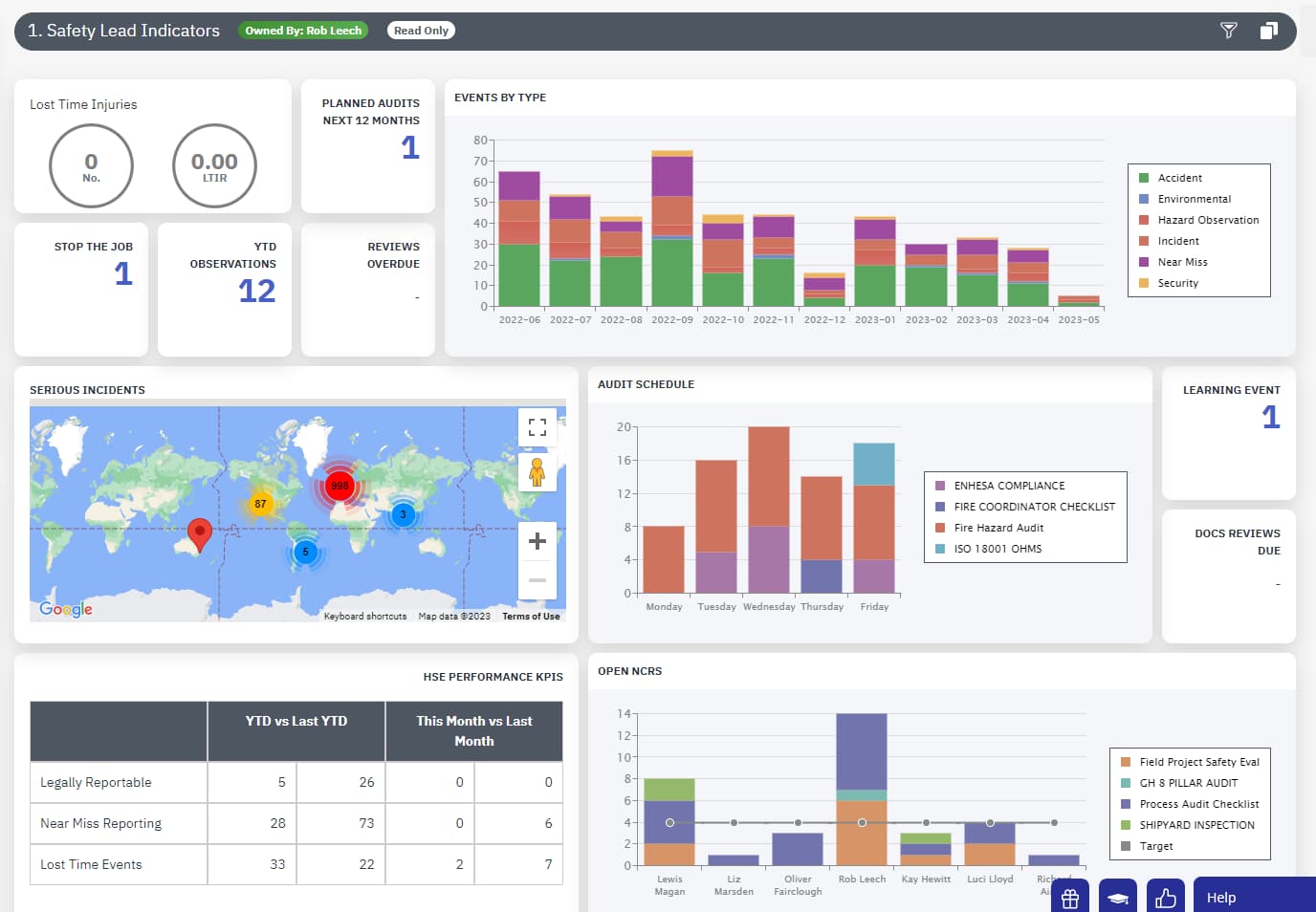
HSEQ Meaning & Definition
Health, Safety, Quality, and Environment (HSEQ)
Every successful business and organization prioritizes the well-being of its employees, the quality of its products or services, and the impact of its operations on the
environment.
As the world becomes increasingly interconnected and aware of the adverse effects that certain business practices can have, it is essential to understand the importance of Health, Safety,
Quality and Environment (HSEQ) management.
 Quality control is a vital aspect of your HSEQ system
Quality control is a vital aspect of your HSEQ system
What is Health, Safety, Quality, and Environment (HSEQ)?
HSEQ is an integrated management system that outlines the best practices and guidelines for organizations to ensure a safe, healthy, and environmentally friendly working environment, while also
focusing on continuous improvement in product and service quality.
The HSEQ management system encompasses various policies, procedures, and protocols designed to address a wide range of issues, such as employee well-being, waste management, incident reporting, and quality control, among others.
Each pillar has its unique attributes and significance:
-
Health: The focus is on optimizing the physical and mental well-being of employees, especially in terms of minimizing illnesses and injuries resulting from work activities or
conditions. - Safety: The primary aim is to prevent accidents and injuries through effective risk management, appropriate training, and adherence to industry standards and regulations.
-
Quality: This pillar looks at implementing systems and processes that ensure consistency, efficiency, and high standards in organizations’ products or services, ultimately
leading to customer satisfaction. - Environment: Business practices that minimize negative environmental impacts and promote sustainable practices, such as reducing waste, pollution, and energy consumption.
The Importance of HSEQ
The significance of HSEQ is increasingly recognized by businesses as an essential component of growth and sustainability.
Health and safety practices help protect employees from injury or illness, ensuring a happier and more productive workforce. In addition, they shield
the organization from potential financial and legal consequences that could result from workplace accidents.
Meanwhile, ensuring the quality of products and services not only promotes customer satisfaction and loyalty but also protects the company brand image from negative consumer reviews.
Environmental stewardship, including waste management, pollution control, and climate change mitigation, can lead to cost savings in the long run and foster a positive public image of the
company’s commitment to sustainable business practices.
Creating Safer Health and Safety Practices
Paying attention to health and safety practices in the workplace is not only the right thing to do, but it can also be legally required.
Organizations should establish health and safety management systems and assign specific responsibilities to employees to ensure that all necessary measures are in place.
This might include the provision of appropriate personal protective equipment (PPE), ergonomic
workspaces, regular risk assessments, and relevant staff training.
Companies can further demonstrate their commitment to employee wellbeing by offering wellness programs, promoting good work-life balance, and fostering an open and inclusive work environment.
Ensuring Product and Service Quality
Quality assurance (QA) is crucial for organizations striving for sustainability and success in the global business landscape.
QA includes the development and implementation of systematic processes that review the quality of products and services, from raw materials to finished products.
Companies should invest in quality management systems (QMS), set high-performance standards, and continuously monitor their processes to identify and address any areas that require
improvement.
Moreover, leveraging technology and data analytics can improve QA and enable businesses to better anticipate and respond to emerging market trends, customer expectations, and regulatory
requirements.
Promoting Environmental Sustainability
Environmental sustainability is growing as a corporate priority, not only for its ethical implications but also for the long-term survival of businesses.
Improving an organization’s environmental performance involves managing waste and emissions, using resources efficiently, implementing sustainable procurement practices, and developing
renewable energy strategies.
Many companies choose to work towards environmental certifications or implement environmental management systems (EMS) such as ISO 14001 to
demonstrate their commitment to environmental responsibility.
Fostering a Strong HSEQ Culture
A strong HSEQ culture within an organization is critical for ensuring that these principles are embedded in everyday business practices.
This involves top management leading by example, setting clear expectations, and providing adequate resources to support HSEQ initiatives.
Additionally, employees at all levels should be involved in decision-making processes, and training programs must be in place to ensure that every member of the organization has the knowledge
and skills required to contribute to HSEQ goals.
Finally, organizations should regularly review and evaluate their HSEQ performance, celebrating successes, and learning from challenges to continuously improve.
Use EcoOnline to Establish Strong HSEQ Principles
EcoOnline is a cloud-based health & safety system that companies can use to establish robust HSE and HSEQ principles and to build a strong safety culture in the workplace.
EcoOnline takes a modular approach, allowing companies to choose from different modules depending upon their safety and security requirements. This allows companies to conduct
advanced root cause analysis, establish safe work practices, and get better reporting on safety events.



